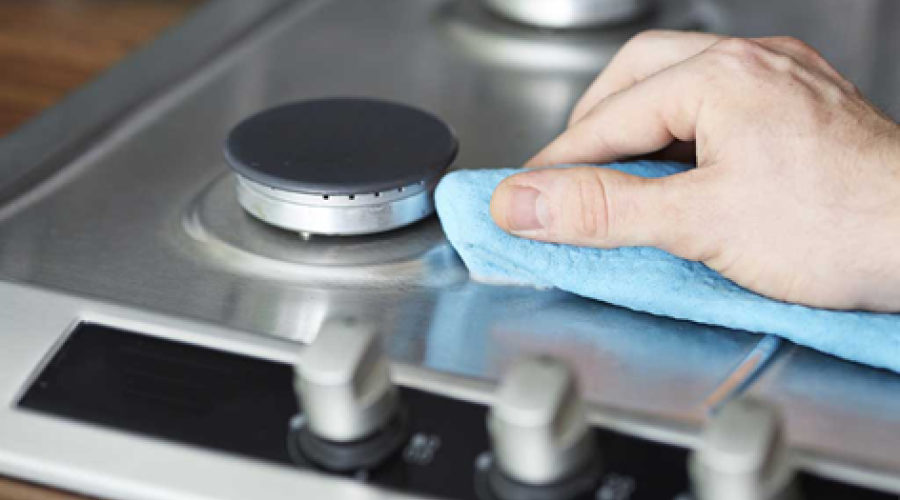
If you’re a proud owner of one of AFRA’s cooking ranges, you must have realized by now that keeping it clean is no small task.
Maintaining your cooking range regularly is important. Not only does it keep it looking its best, but it also helps to extend its lifespan and keep it operating at maximum efficiency. And with lower energy consumption, better reliability, and fewer repairs, your wallet will benefit too.
To that end, we’ve compiled some easy maintenance tips to help you keep your cooking range in good shape:
Prevent Boil-overs
When cooking, make sure your pots and pans are deep enough to prevent the contents from boiling over and splattering onto the stove. Deep pots will minimize spillage, which will, in turn, reduce cleanup work and help to extend the life of your cooking range.
Clean Up Spills Quickly
Let’s face it: cooking spills are inevitable, no matter how many precautions we take. But there’s still good news: you can get rid of almost any spill, while it’s still warm, with a damp sponge or paper towel. Wipe down your stovetop after every use, and it will gleam like new for decades while saving you from hours of scrubbing.
Don’t Use Abrasives
Unfortunately, nobody is perfect. Sometimes, you won’t be able to wipe up spills right away. If a spill has been left too long and dried out, then it’s best to use a sponge, either with dishwashing solution and warm water, or a 50-50 mix of vinegar and warm water. Otherwise, a general all-purpose cleaner will do.
You’ll need to work quickly, though. The longer the spill remains, the more effort it will take to clean it off. Moreover, whatever happens, don’t use any kind of abrasive powder. Abrasives will create minute scratches in which stains can collect, making them even harder to clean off.
Clean Parts Often
It doesn’t end with just an after-use wipe down. It’s also best practice to give your stove parts a more thorough cleaning.
You can wash the burner drip plates and other removable accessories (except electric burner coils!) either by hand or by sticking them into the dishwasher (but make sure they are dishwasher safe first!).
The control panel knobs must be carefully removed. Usually, they can be pulled straight out, but check with your instruction manual first. Once they’re removed, clean around the knobs’ bases and wash them in hot, soapy water. Make sure to rinse and dry before replacing them.
Under the Hood
If your cooking range lacks a sealed cooktop, then food and grease will accumulate under the burners. Most people tend to overlook this debris, since it’s not so noticeable.
To access this space for cleaning, you must lift the cooktop. We strongly advise consulting the owner’s manual for lifting the top without damaging it. You can clean the grease buildup with a sponge and warm, soapy water. Otherwise, a 50-50 solution of vinegar and warm water will also do the trick. Once you’re done, rinse with clean water and a sponge.
Oven Windows
Oven windows have a habit of becoming very dirty. Sometimes it can get so grimy that we can’t even tell if anything is inside, let alone whether our meal is finished cooking. Which means you’re constantly opening the door to check on your food.
To keep your window nice and squeaky clean, simply rub it with a damp cloth dipped in baking soda. And if the grime is too stubborn, wipe the window with ammonia and let it stand for half an hour. After that, you can simply scrape it off with a plastic ice scraper. However, whatever you do, don’t use a metal tool, as it might cause damage.
Oven racks and interior
Before cleaning the inside of your oven, you’ll need to wait until it’s cooled down. Once it’s cool to the touch, remove the oven racks, then spray oven cleaner directly onto the interior surface. After a few minutes, wipe off the solution with a clean rag.
As for the racks, you’ll need to wash them in the sink. Just let them to soak for 10 minutes, then scrub them using a regular kitchen sponge.
By keeping these tips in mind, you can ensure your cooking range lasts longer, runs at optimal efficiency, and saves you a lot of energy as well.

Leave a Comment